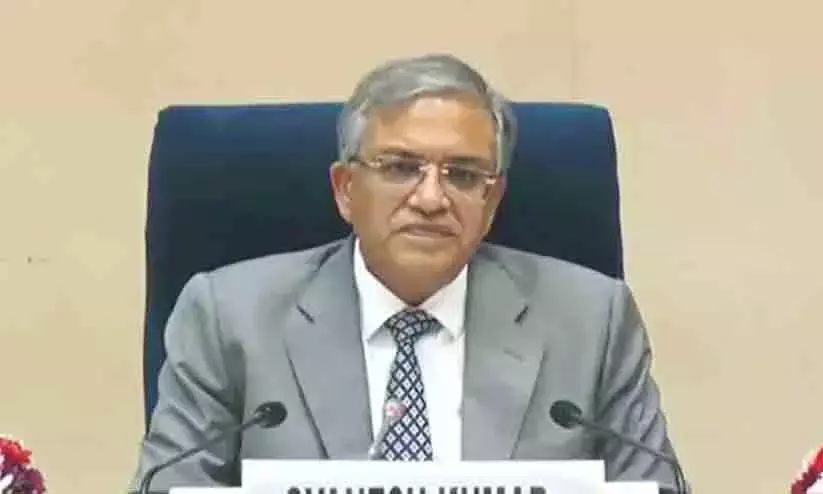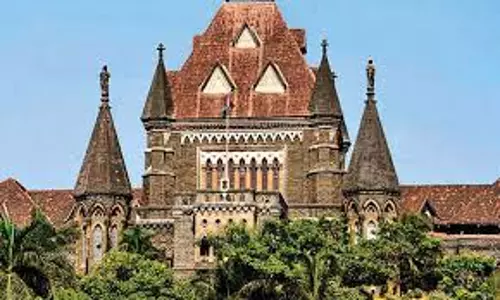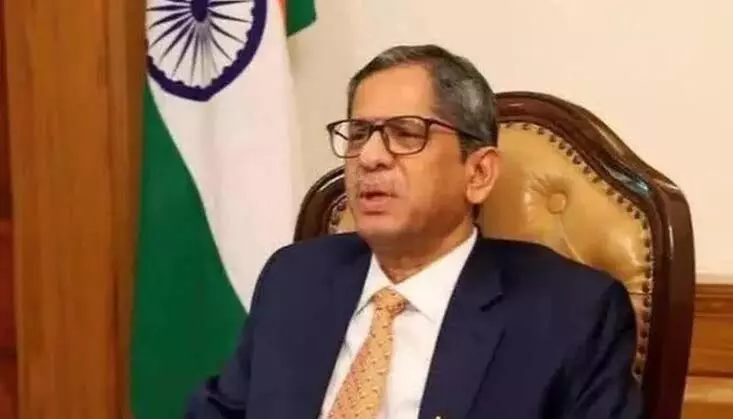
Public must know their constitutional rights and duties: CJI NV Ramana
text_fieldsChief Justice of India ( CJI ) NV Ramana on Wednesday noted that it was unfortunate that even after 75 years of independence, not all but only a few people were aware of the constitutional provisions. He stressed that the public must know their constitutional rights and duties.
CJI Ramana, was speaking as the chief guest at an event by Eastern Book Company to celebrate the release of 'Supreme Court Cases (SCC) pre-1969.'
CJI Ramana drew a comparison from the West and noted that even young schoolkids are aware of constitutional rights in western countries, and 'that kind of culture is needed here.'
"The lawyers and the public must know the constitutional provisions and the Constitution. It is unfortunate that we are now celebrating 75 years of independence but still, only a few selected people in the urban areas or the legal professionals are aware of the constitutional rights and duties and the constitutional principles," CJI Ramana said.
He stated that the ultimate consumer of justice is the public and thus called for "simple" judgement writing by the judges as well as the publication of important judgements of the Supreme Court and high courts in regional languages by law journals.
"They [people] must know what the Constitution says and how they are entitled [under the laws]. What are their rights, how to implement their rights, and how to know their duties? It is necessary for us, especially [law journals] to try and introduce at least selected judgements of importance -- crux and not the entire judgement -- in regional languages to enable access to a simple language," he added.
Acknowledging that translation of judgements in regional languages in a simple manner would entail a financial burden, CJI Ramana added, "I hope some governments can also give some money because they are now starting several projects for popularising the Constitution and the constitutional schemes. We can think of this issue also."
He further said, being a judge for 22 years, he was aware of the criticism that judgements are at times "like a thesis" and requested all members of his fraternity to be simple.






















